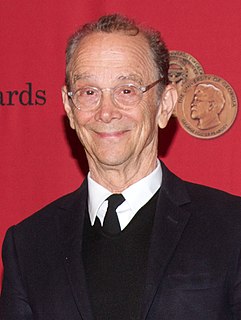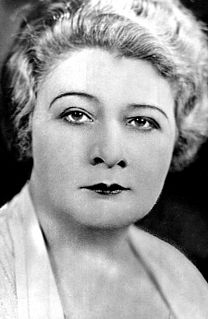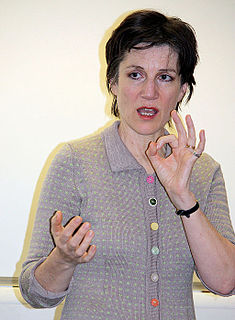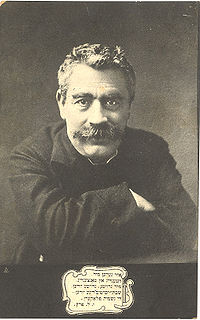A Quote by Joel Grey
The Yiddish language is so rich and unusual that I've always been hooked on its sounds, although I don't speak it.
Related Quotes
Even though I loved the song [My Yiddish Momme] and it was a sensational hit every time I sang it, I was always careful to use it only when I knew the majority of the house would understand Yiddish. However, you didn't have to be a Jew to be moved by 'My Yiddish Momme.' 'Mother' in any language means the same thing.
Yiddish, originally, in Eastern Europe was considered the language of children, of the illiterate, of women. And 500 years later, by the 19th century, by the 18th century, writers realized that, in order to communicate with the masses, they could no longer write in Hebrew. They needed to write in Yiddish, the language of the population.
What happens when you speak colloquial Hebrew is you switch between registers all the time. So in a typical sentence, three words are biblical, one word is Russian, and one word is Yiddish. This kind of connection between very high language and very low language is very natural, people use it all the time.
English has always been my musical language. When I started writing songs when I was 13 or 14, I started writing in English because it's the language in between. I speak Finnish, I speak French, so I'll write songs in English because that's the music I listen to. I learned so much poetry and the poetic way of expressing myself is in English.
It takes more time and effort and delicacy to learn the silence of a people than to learn its sounds. Some people have a special gift for this. Perhaps this explains why some missionaries, notwithstanding their efforts, never come to speak properly, to communicate delicately through silences. Although they "speak with the accent of natives" they remain forever thousands of miles away. The learning of the grammar of silence is an art much more difficult to learn than the grammar of sounds.
When I took part in European leaders summits, it was sometimes unpleasant for me to hear Romanian, Polish, Portuguese, and Italian friends speak English, although I admit that on an informal basis, first contacts can be made in this language. Nevertheless, I will defend everywhere the use of the French language.
Yiddish, the language which will ever bear witness to the violence and murder inflicted on us, bear the marks of our expulsions from land to land, the language which absorbed the wails of the fathers, the laments of the generations, the poison and bitterness of history, the language whose precious jewels are the undried, uncongealed Jewish tears.


































